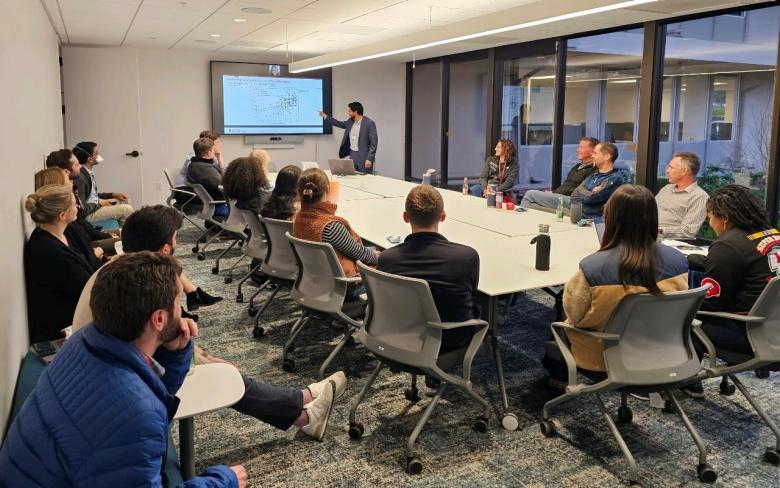
Fellowship program by Stanford School of Medicine and the GSE wraps up first year
Every public school teacher has passed a rigorous certification process. At Stanford Graduate School of Education (GSE), they take things one step further, researching pedagogy to “achieve equitable, accessible and effective learning for all.” By comparison, surgery’s old educational mantra — “see one, do one, teach one” — seems woefully out-of-date.
“Much of the research in medical education lags behind that of the global education discipline as a whole,” said James Korndorffer, who serves as vice chair of education in Stanford’s Department of Surgery. “The advances in medical education research from collaboration will benefit all disciplines involved — the learner, and also through the learner, a lifetime of patients.”
Korndorffer decided to create a fellowship program linking Stanford’s School of Medicine (SoM) and the GSE after enrolling in the Stanford Medicine Leadership Academy in 2018. Although the idea was put on hold due to the COVID 19 pandemic, Korndorffer was able to secure funding with the assistance of GSE Dean Daniel Schwartz, SoM Senior Associate Dean for Medical Education Neil Gesundheit, and SoM Associate Dean for Graduate Medical Education Laurence Katznelson, and enrolled the first two postdoctoral fellows in 2023. The program is currently wrapping up its first year.
The pilot program included two postdoctoral fellows:
- Zihan Zhou, under the mentorship of Radiology’s Kawin Setsompop and Psychology/GSE’s Jason Yeatman
- Albaraa Basfar, under the mentorship of the GSE’s Farzana Saleem and S-SPIRE’s Arden Morris
“The fellowship's focus on applying research to real-world applications directly aligned with my passion for improving educational equity for underrepresented minorities (URiM),” said Basfar. “The program provided a unique opportunity to develop and implement relevant research that could have a tangible impact in the field of education.”
Morris said she felt similarly but from the opposite angle.
“I had been searching for a way to improve our pipeline/pathway program for STEM-interested teens from URiM backgrounds. I hoped this post-doc could take over the program and generate new knowledge in terms of measuring success in a pipeline program,” said Morris. “I also wanted to better connect with colleagues in GSE, and this was a nice opportunity to do that with Saleem, who studies aspects of resilience among racial/ethnic minoritized teens.”
So far, Basfar, Morris, and Saleem have completed analyses from a survey of medical students to understand the interplay of formal and informal mentorship, sense of belonging, and peer/social support among medical students across the US. Basfar is also working on a systematic review to assess cumulative evidence on how best to define and measure success of such pipeline or pathway programs.
“This is an important program because it allows students multidisciplinary exposure to both the GSE and the SoM,” said Farzana Saleem, an assistant professor at the GSE. “Students have access to faculty and support across the two schools and have the opportunity to consider how education and medicine intersect.”
Zhou will present research at the annual meeting for the International Society for Magnetic Resonance in Medicine in Singapore at the beginning of May, and at the Organization for Human Brain Mapping’s annual meeting in Seoul, Korea, at the end of June.
“The fellowship has solidified my interest in developing and implementing research-based solutions to improve educational equity for underrepresented minorities,” said Basfar. “I've received invaluable training in grant writing and the intricacies of working in academia. This training will be instrumental in my job search.”
This article was originally published by the Stanford School of Medicine.



